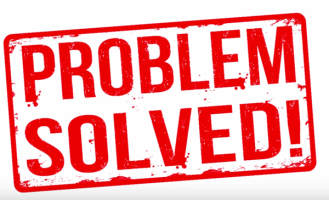IRS Audits
The True Cost
The IRS can audit by any means such as the mail, in their office, or in your home or office. Depending on the location of your audit is a good indication of the severity of the audit. The classic IRS audit letter may be deciphered by clients to mean "Just come down to see us" or "We'll be just coming to see you. Oh yeah, by the way, make sure to bring anything and everything related to your taxes for the last 3 years." Enter your panic mode!
Typically, correspondence audits are for missing documents in your tax return that IRS computers have attempted to find in which these usually include W-2’s and 1099 income items or interest expense items. This type of audit can be handled through the mail with the correct documentation.
The IRS office audit is usually with a Tax Examiner who requests numerous documents and explanations of various items being examined. This type of audit may also require you to produce all bank records for a period of time so that the IRS can check for unreported income.
IRS audits can cost a considerable amount of time away from your family and job. To top it off, if you don´t comply, the cost of any additional tax charges such as penalties and interest can come to more than your annual income.
The IRS audit scheduled for your home or office should be taken even more seriously due to the fact that the IRS Auditor is a Revenue Agent. Revenue Agents receive more training and auditing techniques than a typical Tax Examiner. Auditors are trained to extract more information out of you than you are required to provide. They are comfortable to speak with, and seem quite friendly. However, their job is to find mistakes and errors. Oftentimes taxpayers attempt to handle their IRS examination alone, only to fall deeper into trouble when speaking to the auditor.
All IRS audits should be taken seriously because they often lead to other tax years and other tax deductions not originally stated in the audit letter.
How It Works
IRS audits typically start with one year and then expand to others as the auditor finds discrepancies. Our goal is "to stop the auditors in their tracks on the first year being audited in order to prevent any additional changes in other years".
Our firm handles IRS audits by performing our own evaluation of your records prior to the scheduled audit date. This allows us to uncover any potential areas of weakness in your documentation prior to the actual audit. Inadequate documentation is a “green light” for an IRS auditor to dig for more issues!
We also strongly recommend that all communications with the auditor be handled by our firm. This puts the IRS on notice that you are serious about winning your case and also keeps any unnecessary conversations to a minimum, and therefore minimizing additional issues arising.
As your representative, we can only share with the IRS, what you have shared with us. Keep in mind that this is not the case when you are sitting across the large desk from a trained professional IRS Auditor.


